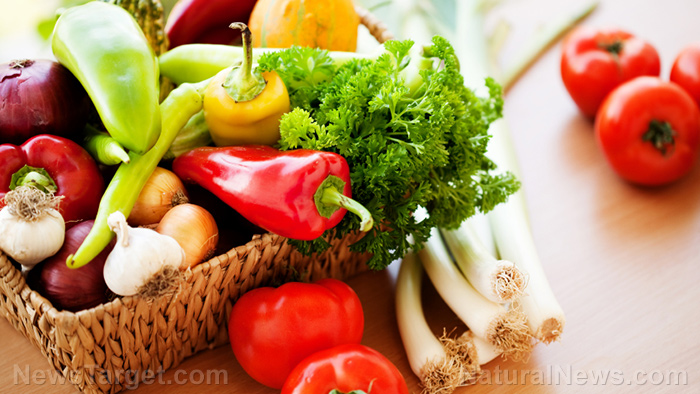
Eating a lot of vegetables will not just benefit you – if you’re pregnant, it may also help your baby reduce their chances of developing asthma, according to a study published in the European Journal of Clinical Nutrition. In the study, researchers from the National Research Institute for Child Health and Development in Japan looked at how vegetable intake during the early stages of pregnancy can affect neonatal health, in particular, wheezing.
Asthma refers to the inflammation of the lungs and the airways when it is exposed to certain triggers (allergens) – making it difficult to breathe. While the condition is the same for both adults and children, it poses a unique set of challenges when the latter is affected. In particular, this impairs the quality of life of children, as it interferes with normal play, sports, school activities, and even sleeping. This affects their development, as they miss school days because of the condition. Childhood asthma is also a leading cause of hospital visits for children. If left unmanaged, this can lead to even more dangerous and potentially life-threatening attacks.
According to the latest data from the Centers for Disease Control and Prevention (CDC), over 750,000 newborns in the U.S. have asthma. These contribute to over half of reported asthma attacks in a year.
In the cohort study, which was conducted in Tokyo, researchers used a survey to gather data from pregnant respondents – in particular, their feeding habits and the frequency by which they consumed certain types of food items. Two years after their children were born, the team followed up on the individuals to gather data using the International Study of Asthma and Allergies in Childhood questionnaire. The answers that were given by the respondents were analyzed to determine any association between maternal vegetable intake and wheezing.
100% organic essential oil sets now available for your home and personal care, including Rosemary, Oregano, Eucalyptus, Tea Tree, Clary Sage and more, all 100% organic and laboratory tested for safety. A multitude of uses, from stress reduction to topical first aid. See the complete listing here, and help support this news site.
Researchers found that women who consumed more leafy greens, as well as folate-rich vegetables, resulted in having children who had a lower incidence of wheezing than those who ate less vegetables. They also found that the effect is true for maternal vegetable intake during early pregnancy; however, no association was found for women in the middle or at the end of their pregnancies. (Related: Expectant mothers reduce diabetes risk in newborns by eating more vegetables.)
“Maternal vegetable intake during early pregnancy may have a protective effect against asthma in offspring at 2 years of age,” the researchers concluded.
Recommended vegetables for pregnant women
It’s true when you hear people saying pregnant women eat for two: An unborn child relies heavily on the mother’s diet to get vitamins and minerals essential for his development. These include the following:
- Beta carotene is essential for cell and tissue development, immune system, and development.
- Folate promotes birth weight and prevents neural tube defects.
- Potassium regulates blood pressure.
- Vitamin C is required for bone development and collagen.
Here are some recommended vegetables for pregnant women.
- Avocados are rich in folate, which helps in brain development of the fetus.
- Beetroots help detoxify the blood during pregnancy, which prevents any birth defects.
- Bell peppers contain vitamin C, which helps repair tissues in the body and helps with iron absorption.
- Green peas are rich in vitamin K, which helps with bone development.
- Sweet potatoes not only help mothers produce more milk, but they improve red blood cell formation in the fetus.
- Tomatoes prevent cell damage during pregnancy, thanks to their antioxidant content.
Learn more about which foods are best for pregnant women by following WomensHealth today.
Sources include:
NCBI.NLM.NIH.gov
MayoClinic.org
CDC.gov
BabyCenter
TheHealthSite
